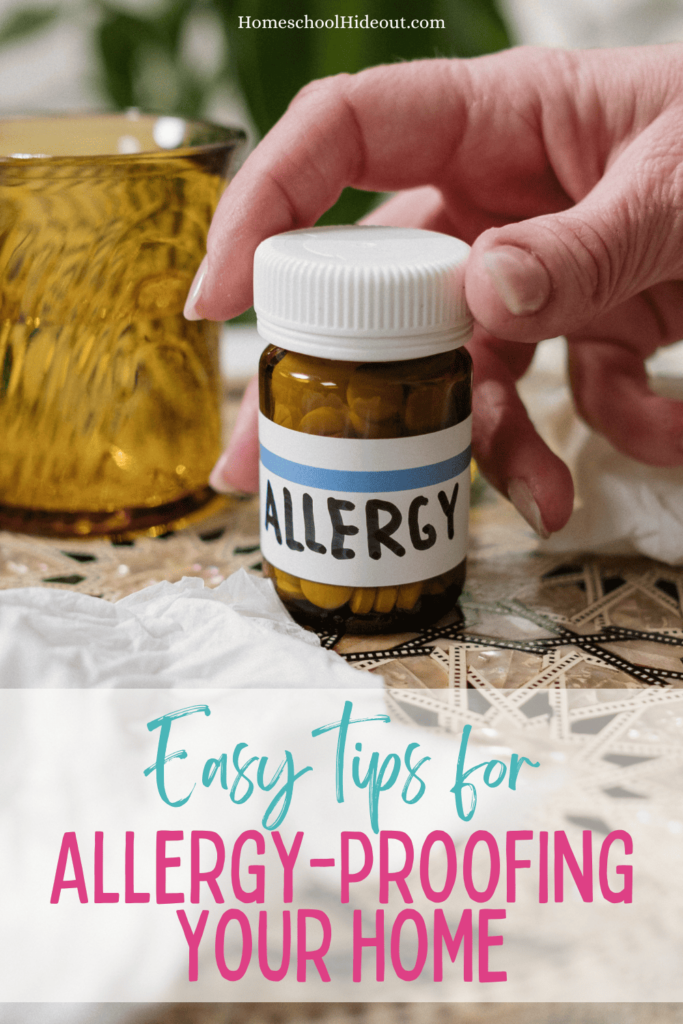Looking for ideas to finally successfully start allergy-proofing your home? We can help.
As parents, we all want our children to be happy and healthy. However, achieving this goal requires more than simply providing them with nutritious food and ample opportunities for invigorating exercise. A truly holistic approach to parenting and health involves all aspects of your child’s well-being, from physical to mental and emotional health.
Addressing these aspects requires accounting for factors that contribute to them, including their social environment, sleep patterns, emotional state, and even specific triggers and allergies. By familiarizing yourself with all aspects of your child’s health and the contributing factors, you can help them grow into a happy, healthy, and well-rounded individual.
Understanding Holistic Parenting
Holistic parenting is a unique approach that focuses on a child’s overall well-being, encompassing all aspects of their lives, including physical, mental, emotional, social, and spiritual health. The core principles of holistic parenting include creating a nurturing and supportive environment for the child, fostering a strong connection between the parent and child, and promoting a healthy and natural lifestyle.
A core benefit of holistic parenting lies in the focus on wholly well-being. In addressing all aspects of your child’s life, you can help them be the best version of themselves, potentially leading to improved physical, mental, and emotional health and social and spiritual well-being.
Holistic parenting also promotes you and your child’s relationship, making their needs a priority by being present and attentive. This can help you construct a deep and meaningful relationship with your child, helping them feel more secure, loved, and supported, which may positively impact their overall development.
This approach strikes balance and harmony in various aspects of your child’s life, from a healthy diet, adequate exercise, and restful sleep to ample opportunities for socialization, relationships, and creative expression.
Nurturing Physical Health
Supporting physical health is a core component of a holistic parenting approach. Like other parts of this approach, nurturing your child’s physical health involves numerous aspects, from ensuring a healthy lifestyle for promoting growth and development to supporting their overall well-being.
Nutrition, Exercise, and Sleep
Nutritious diets, regular exercise, and restful sleep are crucial to physical wellness as a whole.
Children need a healthy, balanced diet that features a variety of foods, including lean proteins, whole grains, fruits, vegetables, and healthy fats.
Activity is another essential piece of general health. Children ages three through five should be active throughout the day, while children and adolescents between six and 17 should try to be active for at least 60 minutes every day.
After a busy day of nutritious food and activities, children need plenty of sleep to rest and recharge. The amount of sleep your child should get can vary based on age. For example, toddlers usually need 11 to 14 hours of sleep daily, while school-aged children typically need nine to 11 hours daily. You can help your child create a healthy sleep schedule by establishing a consistent bedtime, limiting screen time before sleep, and creating a calm and comforting sleep environment.
Medical Care
In addition to promoting healthy habits, incorporating preventative measures into your child’s life can help you prioritize your child’s health. For example, taking your child to the doctor for regular check-ups may help identify and prevent health problems early on. You may also choose to vaccinate your child to help ward off serious diseases.
For example, perhaps you suspect your child may be allergic to a particular substance or food, such as pet dander or peanut butter. An allergist can help you confirm your suspicions and help take steps to ensure your child is comfortable, healthy, and happy.
Allergy-Proofing Your Home: The Role of Allergy Immunotherapy
Dealing with allergies is no fun, especially when your child faces the symptoms. From a runny nose and itchy eyes to a scratchy throat and hives, the symptoms of an allergy can quickly become irritating. Tackling these allergens to ensure your child can live happily and healthily without the dark cloud of allergy symptoms can take numerous forms.
Allergy-Proofing Methods
Implementing specific measures into your home, such as hypoallergenic bedding or natural cleaning methods, is a go-to approach to minimize allergen exposure. Of course, it varies based on your child’s specific allergy.
For example, if your child is allergic to pet dander, you may not be able to have a dog or cat residing in your home. Or, if your child is allergic to dust mites, frequent cleaning and proper ventilation are likely necessary to minimize exposure.
It all depends on the allergen affecting your child. Many parents have adopted these methods into their homes and noticed a significant improvement in their children’s allergy symptoms. Of course, it can vary based on the type and severity of your child’s allergy, so uncovering what works for your home may take trial and error.
Allergy Immunotherapy
Taking steps to minimize exposure can help your child remain comfortable in your home, but it’s not the only option. Enter allergy immunotherapy (AIT).
With AIT, you can tackle the allergen by helping minimize your child’s sensitivity. This approach works by administering a small dose of the allergen by mouth (sublingually) or by injection (subcutaneously). The tablet, drops, or shot contains a small dose of the allergen that increases over time, helping “train” your child’s body to minimize their sensitivity to it.
Sublingual immunotherapy is an excellent option for children, requiring no injections or frequent doctor visits for allergy shots. Of course, if you’re considering allergy immunotherapy of any kind for your child, it’s important to discuss your options with their primary care physician.
Wrapping Up
Holistic parenting can take various forms, from focusing on being more present and attentive with your child to allergy-proofing your home to ensure their comfort. Since every child is different, the steps you may take will likely vary based on your child’s needs.
If your child experiences allergies and you’re considering allergy immunotherapy, discussing the options with their healthcare provider is essential. This treatment can be an excellent addition to your holistic parenting approach and may significantly improve your child’s allergies over months to years. It, alongside other healthy and holistic habits, can help you create a safe, nurturing, and allergy-friendly environment that promotes your child’s well-being.







